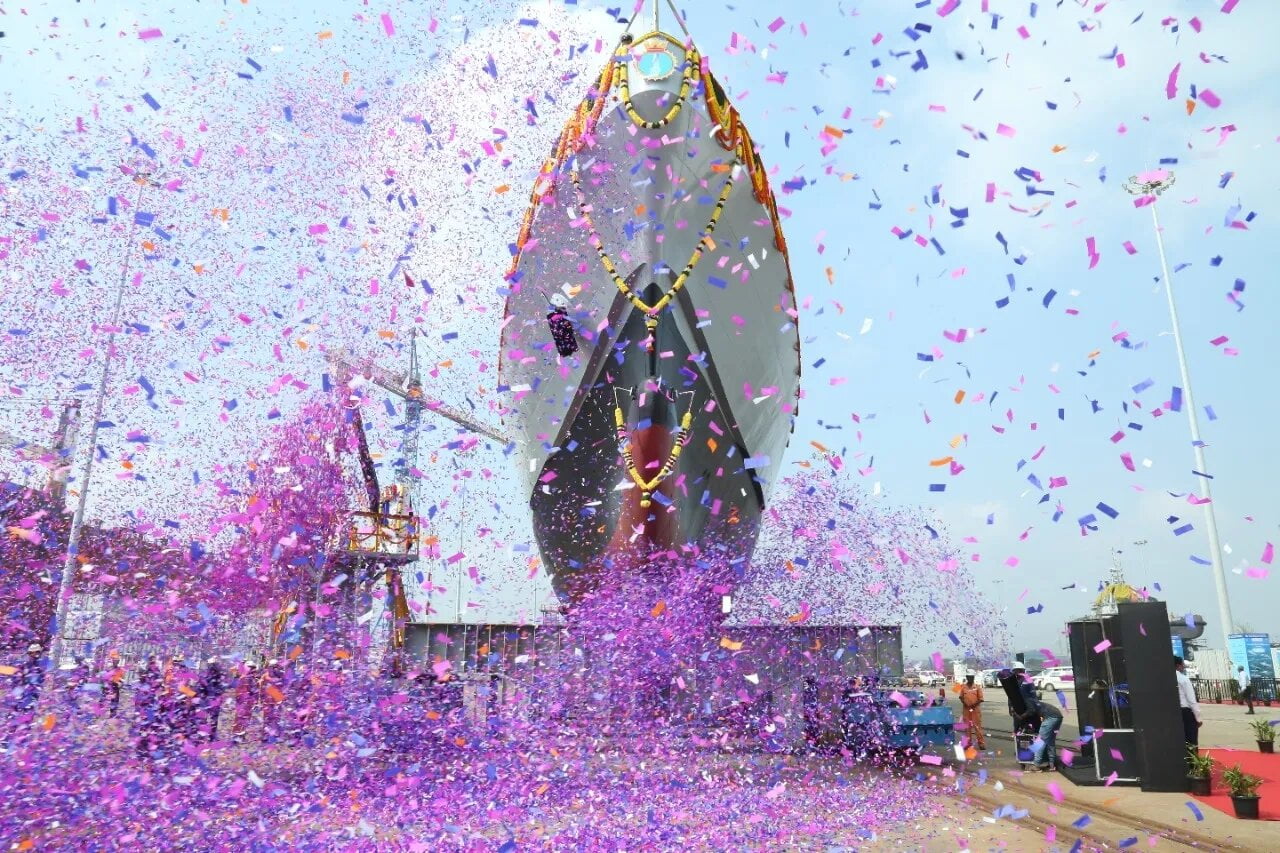Rasika Chaube, Financial Advisor (Defence Services), Ministry of Defence, launched INS Arnala on Tuesday at the Larsen & Toubro shipyard in Kattipallu, Tamil Nadu. INS Arnala is the first anti-submarine warfare shallow water craft (ASWSWC) for the Indian Navy. It is being built by the Garden Reach Shipbuilders and Engineers (GRSE) Ltd.
This is the first of eight ships like this that GRSE is building for the Navy. Cochin Shipyard Ltd. is making eight more ASWSWC.
The first ship will be finished and sent out right on time. So will the others. This will give the Navy the extra power it needs to patrol coastal areas where enemy submarines might be hiding.
#Arnala, the 1st ship of the 8 ASW Shallow Water Craft (ASW SWC) being built by @OfficialGRSE, was launched by Smt Rasika Chaube, Financial Adviser (Defence Services), Ministry of Defence, the Chief Guest, on #20Dec 22 at M/s L&T, Kattupalli, #Chennai. https://t.co/jx5Hyln8i1 pic.twitter.com/54Fi3lH9lZ
— SpokespersonNavy (@indiannavy) December 20, 2022
GRSE is the only defence public sector unit (DPSU) shipyard in India to win the Raksha Mantri’s Award 2022 for designing the quietest ship. The ASWSWC, a quiet ship, was put into the water.
Even though they are smaller than the anti-submarine warfare corvettes of the Kamorta Class that GRSE built and gave to the Navy before, these 77.6-meter-long and 10.5-metre-wide ships pack a powerful punch.
These ships will be able to search and attack as well as do full-scale sub-surface surveillance of coastal waters. They will also be able to work with aircraft to do coordinated anti-submarine operations. These ships will have systems for managing battles and will be armed with both light torpedoes and rockets that can fight against submarines. There will be 57 people on board these ships, including seven officers.
Their three water jets, which are attached to marine diesel engines, will make them easier to turn and allow them to go as fast as 25 knots. The biggest benefit is that these ships will only need a draught of 2.7 metres, which will make it easy for them to get to the coasts to look for threats below the surface.
Chairman and Managing Director of GRSE, Commodore P.R. Hari, IN (Retd), said in his speech that when the ship is given to the Navy, 88% of its parts will be made in India. He stressed how important it is for everyone involved to make decisions on time if they want the best results.
“I’d like to talk about a strange thing about indigenization. It is like a double-edged sword. Even though the goal is good and we must indigenize, we all need to know what that means, especially for projects that have to be done quickly, like building warships. Even though 88 percent of this warship will be made in the country where it will be used, the other 12 percent of imported equipment and systems have already been delivered on time.
“It’s with this 88% that we’re having trouble. I totally agree that the pains and struggles of indigenization are to be expected if the country wants to be 100% indigenized by 2047. “This is where all the stakeholders, all the people who make decisions, the shipyards, and our industry partners must realise that making decisions on time is the most important thing to do to make sure the “Make in India” projects work,” Commodore Hari said.
Rasika Chaube praised GRSE’s efforts to keep the Indian Navy and Indian Coast Guard with modern warships before the launch of INS Arnala. She talked about how India’s best efforts to keep peace and quiet in the area and work toward economic growth are not enough to protect our country from danger.
India has no choice but to make sure that her military is ready for any threat. She also promised that the Ministry of Defense would help GRSE in the years to come.
